

1) Overview
This model has an Electronic Steering Damper (ESD) [A]. Unlike conventional manual adjustment method of Kawasaki, damping characteristics are adjusted by the electronic control unit.
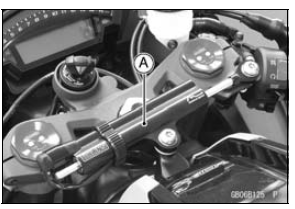
2) Purpose
Designed to offer increased stability at high speed without interfering with light and nimble steering at low speed.
3) Advantages
Damping characteristics are properly adjusted by the electronic control unit based on primarily vehicle speed, and additionally acceleration/deceleration.
During public road riding, lighter damping characteristics are selected to preserve the natural nimble handling of this model.
During circuit riding, stiffer damping settings are chosen to enhance stability for better cornering.
Like the public road riding settings, ESD provides the rider with moderate feedback while maintaining natural handling feel. (moderate and natural work fine here) Electronic control is based on speed and acceleration, so at high speeds stability is enhanced.
4) Difference
Change the steering damper damping adjustment method from manual (ZX1000JC/KC) to automatic (Stepper Motor).
Previous Models ( ZX1000JC/KC)
ZX1000JC/KC)
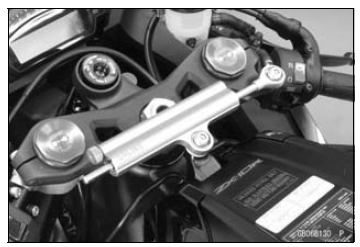
New Models (ZX1000JD/KD)
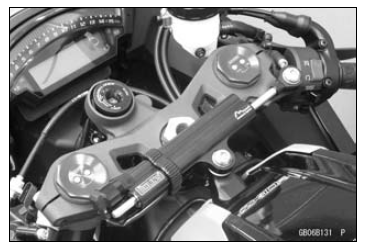
5) Related Parts
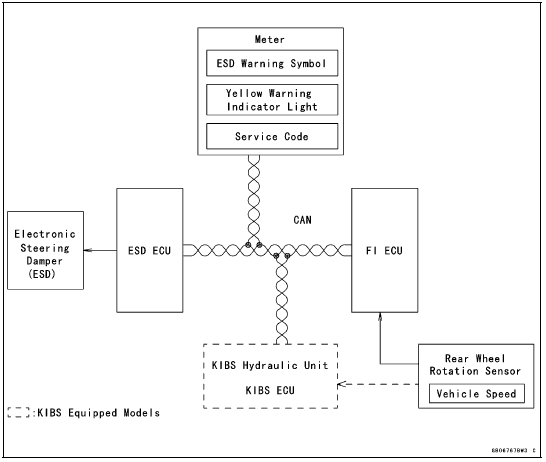
Meter [A] Electronic Steering Damper (ESD) [B]
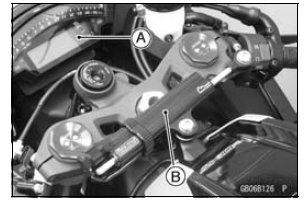
ESD ECU [A]
FI ECU [B]
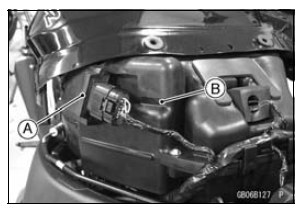
Rear Wheel Rotation Sensor [A]
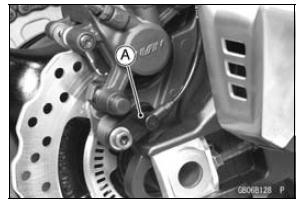
6) Meter
Added an indicator “ESD” warning symbol [A] in the instruments.
The yellow warning indicator light [B] and ESD warning symbol go on whenever there is a malfunction in the ESD system.
At this time, the ESD system maintains the last damping force setting.
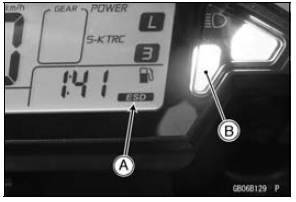
7) Error Display
Only Meter Diagnosis
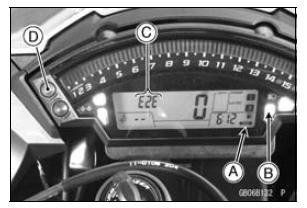
When both “ESD” warning symbol [A] and yellow warning
indicator light [B] go on , the LCD displays service code
[C] by push the upper button [D] at odometer indication
(see Self-Diagnosis Procedures in the Self-Diagnosis System
chapter). 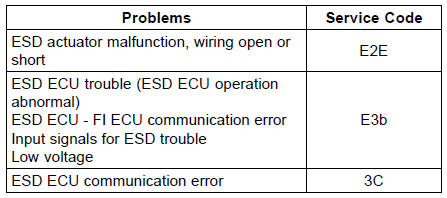
Unit Conversion Table
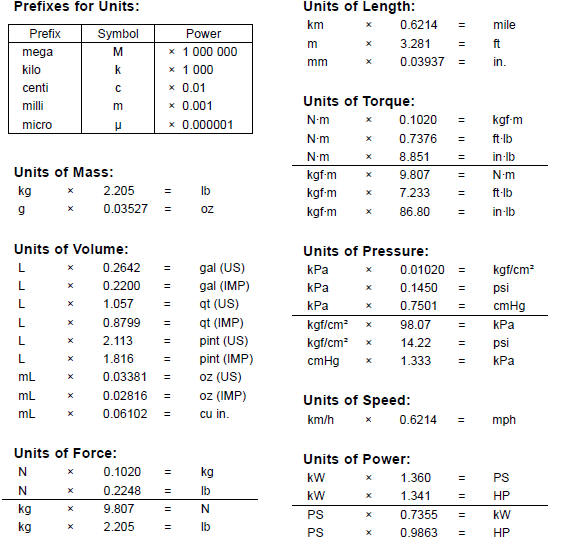

 Related Parts Locations
Related Parts LocationsExhaust Pipe Removal
Remove:
Radiator (see Radiator and Radiator Fan Removal in the
Cooling System chapter)
Exhaust Pipe Clamp Bolt [A] (Loosen)
Remove the exhaust pipe holder nuts [A], and pull out the
exhaust pipe [B] forward from the premuffler chamber.
...
Immobilizer System (Equipped Models)
This motorcycle is equipped with an immobilizer system to protect the
motorcycle from theft. This
system provides a theft proof device by means of matching a code between the
inbuilt key transponder
and ECU. If the code does notmatch, ignition system, injectors, subthrottle
valve actuator an ...
Gear Position Indicator
The gear position indicator shows the
corresponding gear positions where
the transmission is shifted.
For example, when the transmission
is in 6th gear, “6” is displayed.
A. Gear Position Indicator (Normal mode)
NOTE
If the gear position is in the neutral
position, the gear positio ...